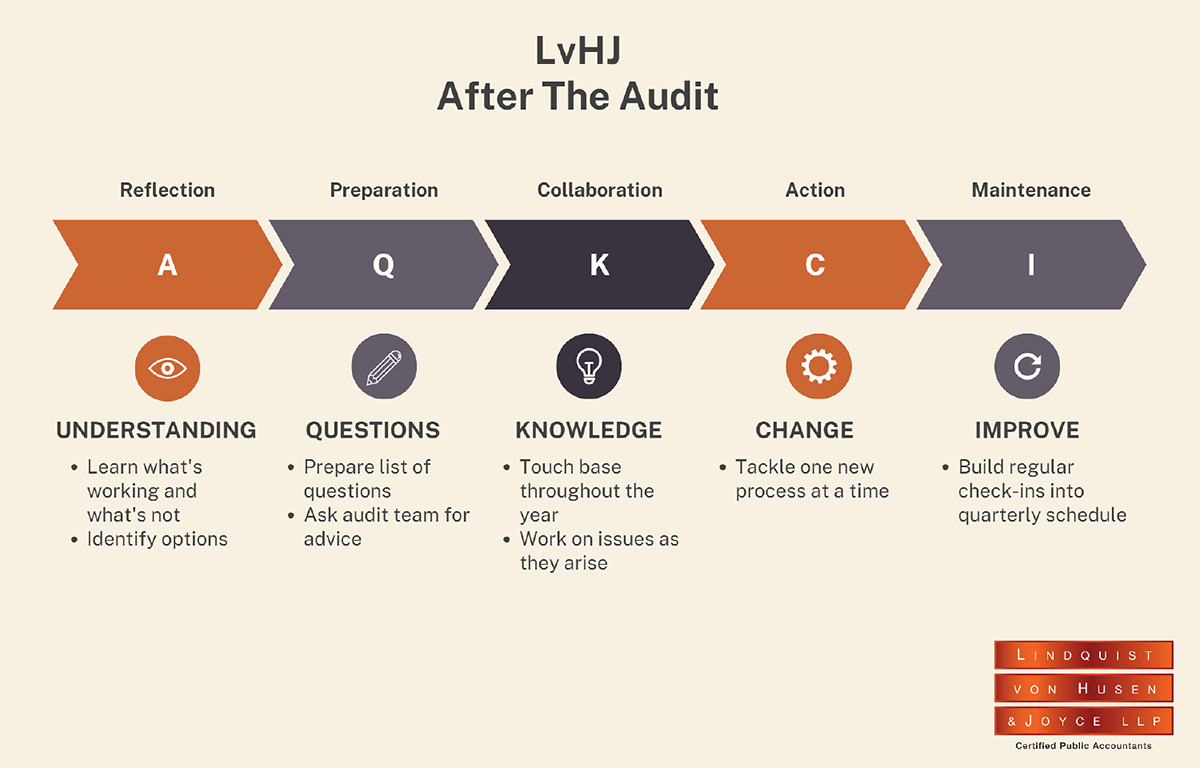
You may have had a “good” audit, but there is always room for improvement. Use what you’ve learned to your advantage by making improvements in your processes and controls throughout the year. When in doubt, ask your audit team!
1. Don’t wait
Don’t wait until your next audit for audit planning. Reach out to your audit team here at LvHJ throughout the year. You will have a healthier organization if you ask questions to help connect the dots. This will also help you develop a good financial narrative for next year’s audit.
2. Create an audit planning process

Here’s how you can get a head start after the audit:
- Use any guidance in your management letter or the audit team presentation to start making improvements
- Look at
- Your financial records
- Your organization’s accounts and business-related transactions
- Your nonprofit’s accounting practices
- Your nonprofit internal controls
- Staff training needs
3. Ask Questions
Don’t worry, you’re not annoying us! In fact, we like it when you check in.
Here are a few examples of questions that arise after the audit:
- Which financing option is best?
- Are we in compliance with a new law that just came out?
- Are we using proper revenue recognition policies?
- What KPIs should I focus on?
- How can we prepare for recessionary pressures?
- How will the new leasing standards affect our financial statements?
- What should we consider for reconciling our intercompany accounts?
- How do I prepare for a resyndication?
Although your audit team cannot perform management’s accounting functions or make a decision for you, they can guide you on the rules and certain things they look for during the audit that can create higher audit risk. In addition, they can point you to resources that can help you make decisions after the audit.
How Can Auditors Guide Business Owners?
Even for closely held businesses ask questions of your audit team about compliance, the new leasing standards, revenue recognition and more.
Also, you can reach out to your team before you make a decision or move forward with a new process to make sure you understand all the options for your organization. When you work on accounting improvements throughout the year, there is less chance of making mistakes since you’re not trying to change many things at once and you’re not going it alone.
Do it right the first time, so you’re in better shape with your audit next year.
By the way, LvHJ offers staff and board member training as part of our client services. Let us know how we can assist.
Read: Preparing for your single audit








